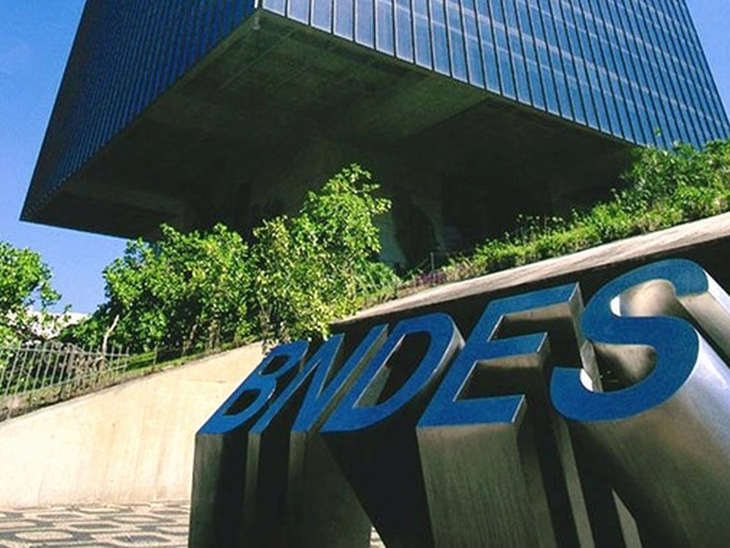
 Financing
Financing
T&B Petroleum/Press Office

The National Bank for Economic and Social Development (BNDES) will enter into a re-planning process, which foresees a stronger performance with small and medium-sized companies. The message was given by the new directors of the bank, Carlos da Costa and Carlos Thadeu de Freitas, who took on Friday (11), respectively, the Planning and Research Area and the Credit, Finance and International areas. They also said that the granting of new financing to Petrobras is not ruled out because of its social impact of job creation and profitability.
Carlos da Costa said during the inauguration ceremony, which he assumes with the commitment to reinvent the institution, "in the largest strategic planning in the history of the bank." This, he said, will be done in dialogue with society, which stimulates innovation, internalization of the country, supporting projects that do not arouse the appetite of commercial banks and aimed at the development of the country. "In the international context [of major transformations], the BNDES has a fundamental role of being a protagonist in the development of Brazil." Costa intends to bring to the bank its experience in the private market.
This plan has two horizons: medium-term, up to 2023, and long-term, until 2030. The idea, said Costa, is to make BNDES a modern development bank "that has a role to correct market failures, which Has as its role to integrate different business, political and social visions for a thriving, globally integrated country, a competitive and productive country. " In order to carry out this work, international consultancies were contracted that participated in the re-planning of foreign banks, such as KFW, Germany. These supporters will bring their experiences to BNDES, but will not determine what should be done, said Carlos da Costa.
The superintendent of the Planning and Research Area, Fabio Giambiagi, noted that the bank is facing its biggest challenge in the last 40 years after overcoming periods of high inflation and high interest rates. Now, the challenge, said Giambiagi, is to continue to use the Long-Term Interest Rate (TJLP), practiced in its operations, of around 7% a year, or adopt the Long-Term Tax (TLP), which is Currently under discussion. If the TLP is not approved, "we will have the Selic rate (basic interest rate) very close to the TJLP and a very new competitive situation for the BNDES as an organization."
According to the superintendent, some traditional historical clients will not continue to go to the bank for credit, or going short, which will require redefining the role of the organization. In any scenario, whether it is continuing with the TJLP or with the new TLP, Giambiagi assured that it will be a challenge for the BNDES, which will need to provide adequate answers. The superintendent estimates that the TLP for the first three years, discounting inflation, may have a real market benchmark of 3%, lower than the National Treasury B-Series (NTN-B) rate of about 5 %.
Fundraising
Economist Carlos Thadeu de Freitas, new director of the BNDES 'Credit, Finance and International areas, confirmed that it is the institution's idea to make new external funding, as he said this week at the National Foreign Trade Meeting (Enaex) , Paulo Rabello de Castro. Freitas recalled that since 1970, the bank has made bonus issues in the international market. "Being away from the market for a long time is not good because you lose your rating. Even if you do not have to take it, it is good to be present to check the risk you are having today in the international capital market. " According to the new director, the BNDES will expect the right opportunity to return to the foreign market. He considered it convenient to "pave the market" to capture later.
Petrobras
Asked whether the bank could grant new loans to Petrobras, which has already overcome the bankruptcy situation, Freitas considered the company an excellent risk. "Any bank would like to lend to Petrobras, because it pays without major problems." In the 1990s, Petrobras had no cash, but managed to recover by taking resources on the international market. The company's risk concentration situation has already been exceeded at the BNDES.
Although the idea is not to concentrate attention on big companies, Thadeu de Freitas pointed out that "Petrobras is different". He added that while international financial standards are important and should be considered, "risk with Petrobras can not be compared to any risk".
Disbursements
The director of Planning, Carlos da Costa, said that the entire Brazilian credit market has, in recent months, experienced a period of contraction in demand. The same occurred in the BNDES, whose disbursements for financing fell. It is up to BNDES to support entrepreneurs to find investment alternatives with the bank and other credit lines that promote Brazil's development, he said.
Costa believes in increasing demand for these lines in the coming months. "We already see from several indicators that the recession has passed." The bank, he asserted, can not have a passive stance. It has a responsibility to support Brazilian companies in finding opportunities for growth and development. Disbursements will depend heavily on corporate expectations in the coming months.
Contact us